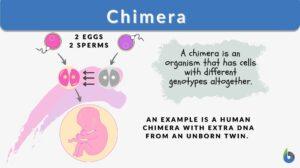Search Results for: virus
Naked virus
Viruses are infectious entities with size ranges between 20 to 400 nanometers. The mammoth-sized virus would be about the... Read More
Biological Viruses
The prime directive of all organisms is to reproduce and survive and this also applies to viruses. Apparently, viruses are... Read More
Tobacco mosaic virus
Definition noun, plural: tobacco mosaic viruses A mosaic virus belonging to genus Tobamovirus that causes mottling and... Read More
coronavirus COVID-19
Coronavirus Disease 2019 (COVID-19) Coronavirus Disease 2019 (COVID-19) is a contagious coronavirus disease first detected... Read More
Retrovirus
Definition noun, plural: retroviruses Any of the group of viruses in the family Retroviridae. The virus is characterized by... Read More
Yellow fever virus
Definition noun, plural: yellow fever viruses A Flavivirus species containing positive-sense, single-stranded RNA with about... Read More
Single stranded DNA virus
Definition noun Any of the viruses belonging to the Class II of Baltimore classification system characterized by having a... Read More
SsRNA-RT virus
Definition noun, plural: ssRNA-RT viruses Single-stranded RNA virus with a positive sense, single stranded RNA genome but... Read More
Double stranded DNA virus
Definition noun Any of the viruses belonging to the Class I of Baltimore classification system characterized by having a... Read More
Temperate virus
Definition noun A virus that does not cause immediate lysis following entry to its host but remains in a latent state,... Read More
Incubation period
Incubation Period Definition The incubation period is the time duration between exposure to the pathogen and the appearance... Read More
Visna maedi virus
Visna maedi virus (Science: virology) A retrovirus of sheep and goats. A member of the lentivirus subfamily related to... Read More
Virulent virus
Definition noun A virus that lyses its host immediately upon infection and often cause disease Supplement Viruses may be... Read More
Reservoir host
Reservoir Host Definition A reservoir host is a host that harbors the pathogen and serves as a source of the infective... Read More
Intermediate host
Intermediate Host Definition When looking at the relationships amongst different biological members of our biosphere, we... Read More
Plaque assay
Definition noun An assay used for virus isolation and purification, and to determine viral titers. Supplement The plaque... Read More
Chickenpox
Definition noun A highly contagious air-borne disease caused by varicella zoster virus commonly affecting children and... Read More
Lytic cycle
Definition noun One of the two cycles of viral reproduction (the other being the lysogenic cycle), which is usually... Read More
Cell adhesion
Cell Adhesion Definition Cell adhesion is the process in which a cell uses a specialized complex of proteins to get... Read More
Plaque-forming unit
Definition A measure of the quantity of individual infectious particles (e.g. virus particles) based on the number of... Read More
Mosaic disease
Definition noun An infectious disease in plants characterized by the speckled appearance in leaves due to mottling and... Read More
Interferon
Interferon (Science: cytokine) a family of glycoproteins derived from human cells which normally has a role in fighting... Read More
Transactivation
Definition noun, plural: transactivations (molecular biology, genetics) The stimulation of transcription by expressing an... Read More
Single-stranded DNA
What is single-stranded DNA? DNA is the material that living organisms possess that carries their genetic make-up. DNA and... Read More
Inoculation
Inoculation Definition In Immunology, inoculation is defined as the process of introducing an antigenic substance or... Read More
Lysogenic cycle
Lysogenic cycle (Science: virology, microbiology) One of the ways of virus reproduction. ( other one:lytic... Read More
Silent mutation
A mutation is a change in the nucleotide sequence of a gene or a chromosome. When there is only one nucleotide involved, it... Read More


















